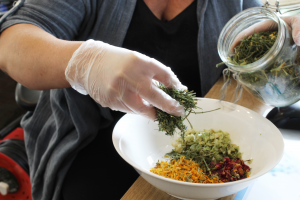Right now you might not feel stressed at all, but there are a few tell-tale signs,
which draws attention that your body is not dealing with things as well as it normally does.
 Are you experiencing more headaches, muscle pain heartburn (stress increases the production of stomach acid), increased insomnia, weakened immune system, high blood pressure, stomach, or lower gastric pain, lowered sex drive, erectile dysfunction, or missed period? You could be experiencing the effects of constant stress.
Are you experiencing more headaches, muscle pain heartburn (stress increases the production of stomach acid), increased insomnia, weakened immune system, high blood pressure, stomach, or lower gastric pain, lowered sex drive, erectile dysfunction, or missed period? You could be experiencing the effects of constant stress.
The very existence of pressure in our lives, minds and bodies, have the power to generate more stress.
Contrary to a common idea, stress is not always bad, to some extent we need it in our lives– otherwise might not get anything done. We (humans) have evolved to experience this physical reaction to tackle unexpected challenges head-on. A surge of stress enabled us to flee from danger when we were hunter-gatherers. Our bodies have been designed to deal with stress in short, bite-sized bursts. There rises a problem, as there are not too many physical threats in our modern lives, however, the psychological stress (work deadlines, social pressures, family and financial struggles) can make us unwell.
Even without us perceiving that we feel overwhelmed to live under constant pressure, the more the pressure piles up, the less we can cope with it and as a result. We simply cannot manage our lives successfully. When the levels become too much, we might become overly reactive, emotional, wary, and eventually sick. Stressed people are more likely to fall out with others, binge on bad food and alcohol, and fill up ‘cupboards’ with problems – which have a habit of tumbling down on top of the person when you least expect it.
 How much would you like to change the situation?
How much would you like to change the situation?
Dealing with stress is one of The Green Herbalist Clinics' treatments approaches
when helping you to motivate to make changes to reach better health.
Dealing with the underlying challenges normally brings a positive change in your health state.
Stress: what happens in your body
In a stressful situation, the body releases adrenaline and cortisol – hormones that cause both your heart rate and breathing to speed up temporarily. This activates the sympathetic nervous system and primes the body for ‘fight or flight. Being on constant high alert can have some pretty unpleasant effects: it can lead to chest pain, anxiety, rapid heart rate, palpitations, and even increase blood pressure – all of which strain the heart and other organs.
Stress – Health
Stress can have damaging, long-term effects on life – too much of it can contribute to the development of obesity, high blood pressure, Type 2 Diabetes, and cardiovascular disease, just to name a few. Stress is also a key factor in insomnia, burnout and immune diseases and disorders such as anxiety and depression.
Despite the side-effects of the stress we seem not to worry about it – and carry on ‘burning the candle on both ends, until the body starts breaking down. Anxiety and stress can trigger the autonomic nervous system and releases stress hormones, which then cause physical symptoms. Stress hormones are normal bodily functions, however, if the body is exposed to continuous stress, problems can start to arise
Here are some of the signs and symptoms you might be experiencing.
 You have a low mood most of the day
You have a low mood most of the day- you have reduced interest in most of the activities most of the day nearly every day
- Your appetite might have decreased or increased from normal
- You suffer either from insomnia or hypersomnia (sleeping too much).
- You feel fatigued and or have a loss of energy
- You might find that your self-confidence is affected – you might want to remember all the good things you have achieved.
What would you say if I said that you can change all of that?
Here are some approaches that have proved to be useful
Taking a problem-focused approach. Research has shown that people who are constantly in high-stress situations focus on problem-solving strategy
– try to identify the source of stress and then eliminate it safely – within the reason.
Don’t overthink it. While you might want to plan for emergencies, worrying about every possible outcome of an action or endlessly assessing your options can lead to unhealthy thinking patterns. Why not just list the pros and cons of your choices?
Avoid an emotion-focused approach, unless necessary. It can be useful to try to focus on controlling negative emotions. How often are you overwhelmed by emotion and making ‘bad’ decisions in a stressful situation? It is useful to try to build up the ability to look at the situation from a different point of view as well as yourself and learn to know the difference between an emotional response and an informed one.
 Try to shift your perspective in a stressful matter:
Try to shift your perspective in a stressful matter:
This is something you have full control over —
whether it’s through breathing techniques, running, or journaling.
As well as different techniques, apps like Headspace app or similar can help you to manage the moments of being overwhelmed daily.
 Getting high-quality sleep. ‘Restorative, quality sleep’ typically means getting to sleep quickly and staying asleep and feeling rested upon awakening. Your body’s ability to heal increases during sleep. During dream time the mind often deals with the ‘stresses’ of the day, allows you to recall the important things and discards the unnecessary things of your thought process. If your unconscious mind feels ‘stressed or unsafe’ you are less likely to sleep well.
Getting high-quality sleep. ‘Restorative, quality sleep’ typically means getting to sleep quickly and staying asleep and feeling rested upon awakening. Your body’s ability to heal increases during sleep. During dream time the mind often deals with the ‘stresses’ of the day, allows you to recall the important things and discards the unnecessary things of your thought process. If your unconscious mind feels ‘stressed or unsafe’ you are less likely to sleep well.
 Do gentle exercise. Plan exercise to your daily routine, even if you are very busy – for example, 15-minute workout or 30-minute brisk walk is sufficient. Walk part of the work journey. Start a new routine such as yoga, outside swimming, and forest bathing. Increasing physical activity releases brain chemicals that improve mood called endorphins. Exercise is a great way to improve your physical, mental and emotional well-being. Try forest bathing and allow the phytochemicals of the plants and trees to ease the stress you are experiencing.
Do gentle exercise. Plan exercise to your daily routine, even if you are very busy – for example, 15-minute workout or 30-minute brisk walk is sufficient. Walk part of the work journey. Start a new routine such as yoga, outside swimming, and forest bathing. Increasing physical activity releases brain chemicals that improve mood called endorphins. Exercise is a great way to improve your physical, mental and emotional well-being. Try forest bathing and allow the phytochemicals of the plants and trees to ease the stress you are experiencing.
Postural stress. is an aspect of stress, you might not have focused on. Postural stress can become more apparent if you have conducted all our meetings via Zoom one day. The stress tends to manifest in the shoulders and neck, causing pain and stiffness. Stretching can improve circulation, gives relaxation time and is also brilliant for ironing out any muscular knots. Alternatively if enjoy having a bath, good old-fashioned Epsom salts (high in magnesium) and some essential oils (lavender, geranium, marjoram, ginger and rosemary) can give stress releasing effect.
 Me-time. Part of self-care is to organise and allow time for yourself. It is a good idea to have a look at what your normal day looks like. Then assess which things cause you unnecessary stress and simply reorganise routines to allow yourself some stress-free time. Often the emotional, mental and physical well-being is overlooked. So allow yourself that session in a spa, watching your favourite team play, workout session or walk in nature with a friend. Allowing ‘me-time’ is a gentle way of stress release can help with pain relief, enhanced mobility, reduction of symptoms in skin conditions, as well as improved psychological wellbeing.
Me-time. Part of self-care is to organise and allow time for yourself. It is a good idea to have a look at what your normal day looks like. Then assess which things cause you unnecessary stress and simply reorganise routines to allow yourself some stress-free time. Often the emotional, mental and physical well-being is overlooked. So allow yourself that session in a spa, watching your favourite team play, workout session or walk in nature with a friend. Allowing ‘me-time’ is a gentle way of stress release can help with pain relief, enhanced mobility, reduction of symptoms in skin conditions, as well as improved psychological wellbeing.
A balanced diet, assessing your work-life balance and good sleep is the foundation of a healthy body and healthy mind.
 Stress management can be a powerful tool for wellness, especially if you maintain a healthy diet, you are more likely to live a stress-free life. Healthy food choices can strengthen your immune system, provides you with more energy and is excellent stressbuster. It is quite an effortless task to talk to your herbalist and organise small dietary changes to build up better gut health and immunity, stronger body and bones – not to mention the benefit on your mood. The body always aims to get well, we are just giving it tools to work with. Comfort foods, like a bowl of warm oatmeal, boost levels of serotonin, a calming brain chemical. Other foods can cut levels of cortisol and adrenaline, stress hormones that take a toll on the body over time – these can include dark chocolate, bananas, pears, pre and probiotics – such as kimchi, kombucha, slippery elm and Gum Arabic, natural yogurt and kefir.
Stress management can be a powerful tool for wellness, especially if you maintain a healthy diet, you are more likely to live a stress-free life. Healthy food choices can strengthen your immune system, provides you with more energy and is excellent stressbuster. It is quite an effortless task to talk to your herbalist and organise small dietary changes to build up better gut health and immunity, stronger body and bones – not to mention the benefit on your mood. The body always aims to get well, we are just giving it tools to work with. Comfort foods, like a bowl of warm oatmeal, boost levels of serotonin, a calming brain chemical. Other foods can cut levels of cortisol and adrenaline, stress hormones that take a toll on the body over time – these can include dark chocolate, bananas, pears, pre and probiotics – such as kimchi, kombucha, slippery elm and Gum Arabic, natural yogurt and kefir.
Herbal remedies

This blog has addressed some of the possible causes, reducing strategies and nutritional approaches to counteract the effects of stress. Herbal medicine is widely used as a relief for stress-related issues.
As a qualified professional herbalist, my aim apart from above mentioned is to provide patients with an integrated and holistic approach to health and wellbeing with the help of herbs and supplements to anxiety and stress
Dietary/herbal remedy mushrooms such as Reishi, Lions mane and Cordyceps (just to name a few) are used to improve emotional balance, to modify the body’s ability to resist stress.
Herbal tea: At times, it is not the drink itself but the feeling that is attached to the beverage that makes you feel comfortable.
There’s nothing a warm cup of tea can’t fix? It simply makes you feel calm and soothes the Vagus nerve (cranial nerve IX and affects the whole of your body).
That soothing effect of sipping a cup tea of with infused herbs - brings a satisfying sense of joy and peace.
Nutritional supplementation
Dietary vitamins from a good varied healthy diet is imperative for good health, brain health, and normal cognitive function. Vitamins and micronutrients play a significant role in maintaining homeostasis whilst the body is exposed to stress.
Let food be your medicine – before starting supplementation, improving your diet can have an important effect on your health
– a qualified medical herbalist can help you

Vitamins and nutrients beneficial to combat stress
Vitamin B - Research has provided some preliminary support that vitamin B supplementation might be able to reduce levels of anxiety and stress, improving psychological well-being. Good food sources of vitamin B: legumes, leafy greens, seeds and fortified foods, such as breakfast cereal and nutritional yeast, poultry dairy, eggs, meat, fish and shellfish.
Vitamin C – According to some studies good levels of vitamin C can reduce levels of stress hormones while strengthening the immune system. One study of people with high blood pressure and elevated levels of cortisol (a stress hormone) returned to normal more rapidly with vitamin C supplementation. Good sources of vitamin C: Citrus fruits are rich sources of Vitamin C, as are broccoli, cauliflower, brussels sprouts, kale, spinach, green and red chilis, strawberries, and kiwi.
Magnesium - Low levels of magnesium may trigger headaches and fatigue, intensifying the effects of stress. One cup of spinach, leafy greens, pumpkin seeds, almonds, avocado, salmon, apples, carrots, and bananas – just to name a few, helps you stock back up on magnesium. Some of these foods are excellent sources of Omega-3 fatty acids as well.
some oils include flaxseed and linseed, nuts - especially walnut, pecan and hazelnuts, soya, pumpkin, krill and algal oil.
Omega-3 fatty acids - Another dietary way to keep stress in check is to add naturally fatty fish to your diet. Omega-3 fatty acids, found in fish such as salmon, herring, pilchards, sardines, mackerel and tuna, can prevent surges in stress hormones and may help protect against heart disease, depression, and premenstrual syndrome (PMS). For a healthy supply of feel-good omega-3s, aim to eat at least 3.5 ounces of fatty fish at least twice a week. Purchase the seafood from licensed sources. This will ensure the seafood has been sourced, stored and inspected properly before it gets to the consumers. It is important to remember that the presence of toxic heavy metals in fish can invalidate their beneficial effects. Some heavy metals and their related chemical compounds dissolve easily in water, while others exist in particulate form. Hence, low amounts are present in water, soil and the seabed. At the clinic, we are also mindful of the sustainability of the fish. A good guide can be found here https://www.mcsuk.org/goodfishguide/
Other sources of omega 3s are soy, specifically walnuts, pecans and hazelnuts, however, all nuts are good sources of healthy fats and may help lower the cholesterol, help with the inflammation levels of your body; soya.
Potassium - Potassium may benefit stress levels by helping to regulate your blood pressure, amongst other things. Foods that are rich in potassium are important in managing high blood pressure (because potassium lessens the effects of sodium). The more potassium you eat, the more sodium you lose through urine – thus important not to overconsume at the same time. Potassium also helps to ease tension in your blood vessel walls, which helps further lower blood pressure.
Foods high in potassium: apricots and apricot juice, avocados, low-fat milk, greens, halibut, some beans, molasses, mushrooms peas, prunes, raisins and dates as well as spinach.
Zinc – Research resources suggest that improved levels of zinc, possibly associated with concurrent oxidative stress, may cause lower levels of stress hormones and may help improve stress and anxiety symptoms. Zinc plays a part in modulating the brain and the body’s response to stress.
Food: Zinc is an essential mineral that may be lacking in modern processed and strict vegetarian diets, as major sources are meat, poultry, and oysters; dairy and eggs.
While beans and grains also contain zinc depending on the soils in which they are grown, phytates in grains, legumes, and nuts can interfere with its absorption. Good vegetable sources of zinc include shiitake mushrooms, green peas, spinach, lima beans, lentil sprouts, asparagus, beet greens, broccoli, okra, and sweetcorn.
As a part of the treatment plan The Green Herbalist Clinic looks into your lifestyle, diet, and exercise levels; advises you on nutrition.
The clinic prescribes herbal remedies to be used alongside orthodox medicine, supplementation and other treatments.

